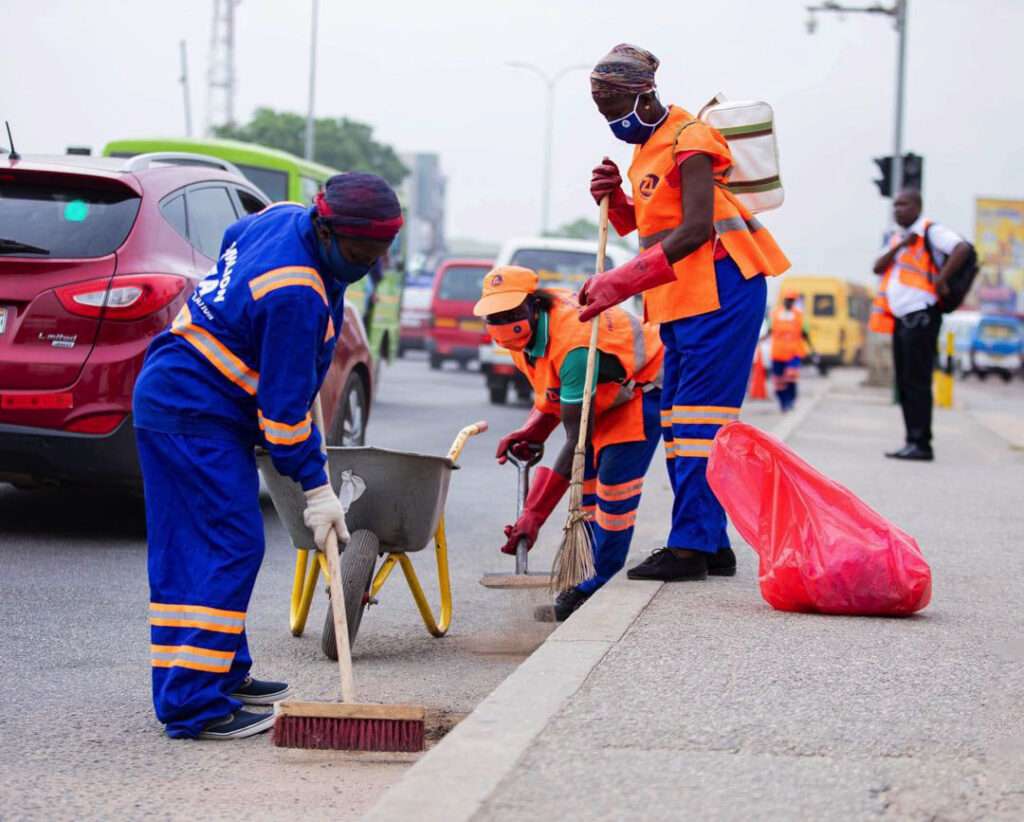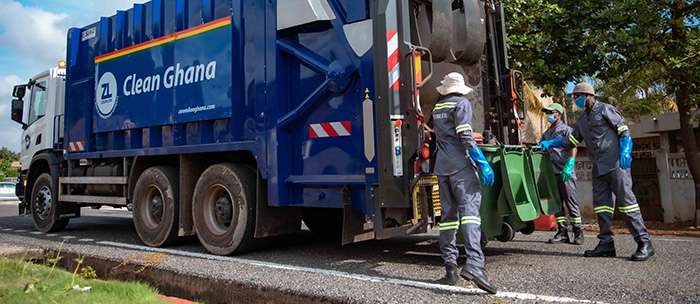In Ghana’s long-running saga of public-private sector dealings, the latest chapter has Zoomlion Ghana Limited once again in the spotlight.
At the heart of the storm is investigative journalist Manasseh Azure Awuni, who has raised piercing questions about how the sanitation giant allegedly manipulates Youth Employment Agency (YEA) sweeper wages—calling it out as a “fraudulent deal” and suggesting active political collusion.
The corruption scandal involving Zoomlion is not new, but fresh evidence presented by Awuni reveals what appears to be a pattern: Zoomlion proposes wage figures to the YEA, and what it suggests is almost always what gets accepted.
This flies in the face of Zoomlion’s repeated public denials of involvement in determining what beneficiaries receive.
“Its (Zoomlion) own statement says the following: ‘The company [Zoomlion] proposed increments in the past from GHS50 cedis in 2006-2014 to GHS100, then to GHS180 from 2019-2022, and to the current GHS258 from 2022 to 2024. In 2024, Zoomlion submitted a request for the allowances to be increased to GHS420….’”
Manasseh Azure Awuni

Awuni disclosed that in Zoomlion’s most recent 2024 proposal, the company suggested that out of a total GHS1,308 allocation per sweeper, beneficiaries should be paid GHS420, with Zoomlion retaining GHS888.
Accordingly, he questioned the company’s repeated denial of involvement in wage determination, pointing out that its proposals have consistently been adopted—including both the amount paid to workers and the portion Zoomlion receives.
Zoomlion Wage Sparks Exploitation Concerns
This situation becomes even more concerning when looking at the details of Zoomlion’s just-ended contract with the YEA.
According to Manasseh Awuni, under this contract, the sanitation company received GHS600 out of a total GHS850 allocation per sweeper, while the workers themselves were paid a paltry GHS250 monthly.
He reiterated that these workers, often responsible for keeping Ghana’s streets clean, reportedly receive no health insurance, pension contributions, transportation allowance, or even basic benefits.

Awuni described their pay structure as akin to “slave wages.” Worse still, he claimed, corrupt public officials have enabled this exploitative scheme by giving Zoomlion the lion’s share of state funds allocated to sanitation.
He cited a 2024 letter from Zoomlion vehemently opposing a move by the YEA to take over the payment of the sweepers directly.
“At the meetings held on 8th July, 2024 (in-person) and 26th July, 2024 (virtual), Messrs. Zoomlion Ghana Ltd. vehemently opposed the proposal for the Agency [YEA] to take over the payment of beneficiaries’ allowances upon the expiration of the six (6) months extension period.”
Zoomlion Ghana Limited
This letter raises a critical question: If Zoomlion is not responsible for determining or distributing the wages, why oppose the agency’s move to assume that role? Why not just take your management fee and let the agency deal with its own payroll?
Awuni’s rhetorical questions dig even deeper: Why does Zoomlion resist transparency if it has nothing to hide? Why not provide YEA with the payroll for its supposedly 45,000 sweepers?
Zoomlion’s Wages Expose Deep-Rooted Rot
In 2018, Justin Frimpong Kodua—then CEO of YEA and now General Secretary of the New Patriotic Party (NPP)—allegedly exposed the inflation of Zoomlion’s figures.
A headcount by the agency reportedly revealed that Zoomlion’s stated number of workers was “far bigger than the number of sweepers on the ground.” Despite this, Awuni claimed Zoomlion refused to present its payroll for verification.
He also challenged the logic behind Zoomlion’s management fees. If workers are being paid GHS250 for three to four hours of sweeping, how can the company justify charging GHS600 per head to manage that work?

The math doesn’t add up, and according to Awuni, it’s “rot facilitated by both Zoomlion and the state officials.”
Adding historical weight to his argument, he pointed to page 131 of the 2013 Ghana Youth Employment and Entrepreneurial Development Agency (GYEEDA) report, which documented financial malfeasance by Zoomlion.
He dared the company to publicly respond to the findings, especially considering its continued access to government contracts despite these allegations.
What Awuni laid bare is not just a questionable financial model, but a disturbing systemic failure—one where political convenience and corporate interest take precedence over the well-being of ordinary citizens doing essential but undervalued work.
The questions are clear. The evidence, according to Awuni, is mounting. Whether there will be political will to confront this corruption scandal is another matter entirely.
READ ALSO: White House Hails US-Ukraine Minerals Deal



















